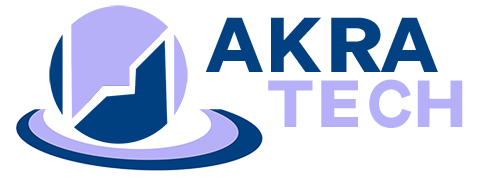Introduction
Web scraping, an intricate process of automating data extraction from websites, is a critical skill in today’s data-driven world. Python, with its simplicity and versatile libraries, is a powerhouse for web scraping. In this guide, we’ll explore advanced techniques using BeautifulSoup, Scrapy, and Selenium for a comprehensive web scraping experience.
The Significance of Web Scraping
Web scraping serves diverse purposes, such as:
Data Analysis: Extracting and analyzing information for informed decision-making.
Competitor Analysis: Monitoring and comparing data, particularly prices, for strategic business insights.
Research Insights: Gathering valuable data for research projects spanning various domains.
Content Aggregation: Streamlining the collection of content for website or application development.
Python’s Dominance in Web Scraping
Python’s preeminence in web scraping is evident due to:
Ease of Mastery: Python’s clean syntax and readability make it approachable for all skill levels.
Rich Library Ecosystem: Libraries like BeautifulSoup, Scrapy, Requests, and Selenium empower developers with advanced tools.
Active Community Support: The expansive Python community ensures swift issue resolution and continuous enhancement.
Versatility: Python seamlessly handles the entire spectrum of web scraping tasks, from data extraction to comprehensive analysis.
The Web Scraping Workflow
A proficient web scraping workflow involves strategic steps:
HTTP Requests: Use requests for efficient HTTP requests.
HTML Parsing: Utilize BeautifulSoup or lxml for creating a parse tree.
Data Extraction: Employ advanced techniques to identify and extract desired data.
Data Storage: Implement efficient storage practices, choosing formats like CSV, JSON, or databases.
Data Analysis: Leverage Python’s data analysis tools for meaningful insights.
Tools of the Trade
1. BeautifulSoup
BeautifulSoup is a Python library for traversing and manipulating HTML or XML documents.
om bs4 import BeautifulSoup
import requests
# Make a request to the website
url = "https://example.com"
response = requests.get(url)
# Parse the HTML content
soup = BeautifulSoup(response.text, 'html.parser')
# Extract information
title = soup.title.text
print(f"Title of the website: {title}")2. Scrapy
Scrapy, an open-source web crawling framework, provides a comprehensive set of pre-defined methods for complex web scraping tasks.
import scrapy
class MySpider(scrapy.Spider):
name = 'my_spider'
start_urls = ['https://example.com']
def parse(self, response):
title = response.css('title::text').get()
print(f"Title of the website: {title}")3. Selenium
Selenium is a powerful tool for automating browser interactions, making it invaluable for scraping dynamic websites.
from selenium import webdriver
# Create a new instance of the Firefox driver
driver = webdriver.Firefox()
# Navigate to the website
driver.get("https://example.com")
# Extract information
title = driver.title
print(f"Title of the website: {title}")
# Close the browser
driver.quit()Advantages of Python Web Scraping Tools:
Ease of Use: Python libraries are designed for user-friendliness.
Community Support: A robust community ensures rapid problem resolution.
Versatility: Python supports diverse data formats and sources, allowing seamless integration into complex projects.
Challenges and Considerations
Web scraping comes with challenges:
Anti-Scraping Measures: Websites may employ measures to thwart automated data extraction.
Captcha Challenges: Some sites use Captcha to deter automated scraping, requiring advanced solutions.
Dynamic Website Elements: Selenium is crucial for handling highly dynamic websites.
Data Volume Management: Effective processing of large datasets demands careful consideration.
Best Practices for Professional Web Scraping
Respectful Crawling: Adhere to a website’s robots.txt guidelines for ethical scraping.
Polite Crawling Behavior: Mitigate server load with delays and throttling mechanisms.
Error Handling: Implement robust strategies for gracefully managing unexpected issues.
Legal and Ethical Compliance: Understand and adhere to legal and ethical considerations.
Conclusion
Mastering web scraping with Python and Selenium is an advanced skill that opens doors to a vast repository of valuable data. As you embark on your professional scraping journey, cultivate ethical practices, stay abreast of legal considerations, and leverage these powerful tools responsibly. Happy scraping!
